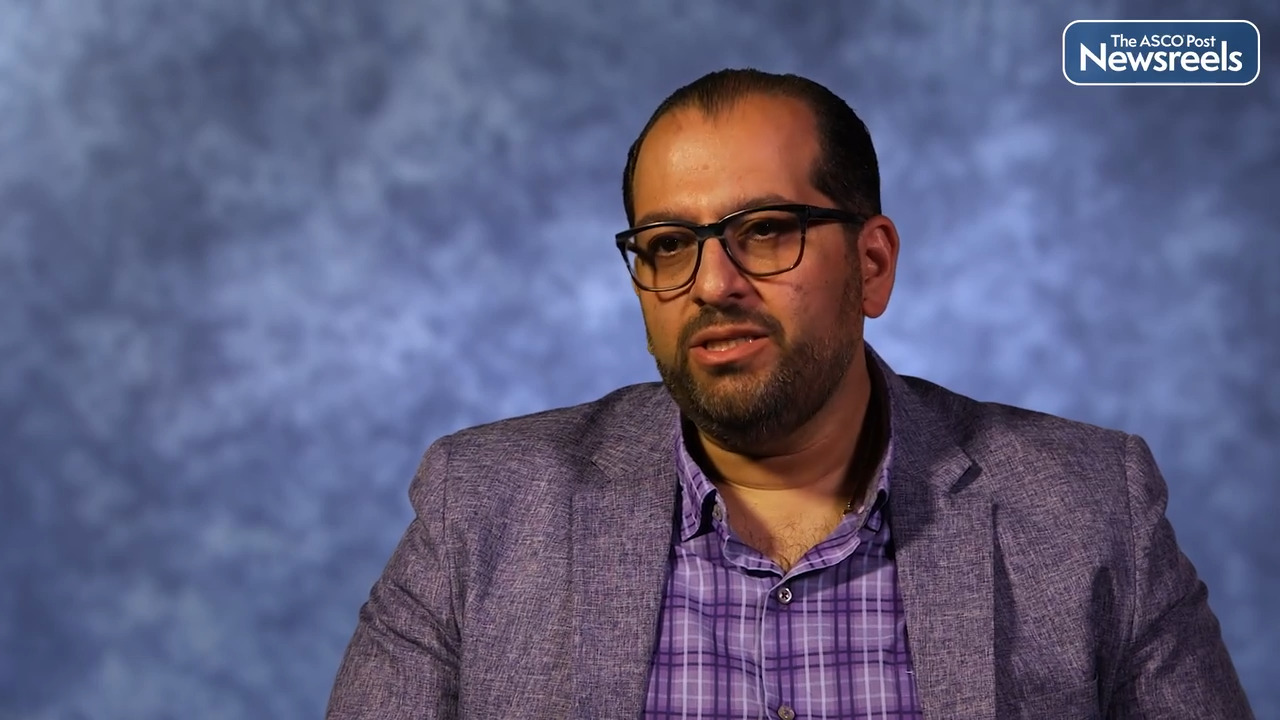Timothy A. Yap, MBBS, PhD, on Ovarian, Breast, Pancreatic, and Prostate Cancers With Genetic Mutations: A First-in-Human Trial of AZD5305
AACR Annual Meeting 2022
Timothy A. Yap, MBBS, PhD, of The University of Texas MD Anderson Cancer Center, discusses results from the PETRA study, a first-in-class, first-in-human trial of the next-generation PARP1-selective inhibitor AZD5305 in patients with BRCA1/2, PALB2, or RAD51C/D mutations in advanced or metastatic ovarian cancer, HER2-negative breast cancer, pancreatic, or prostate cancer. Target engagement was demonstrated across all dose levels, and antitumor activity was observed in selected tumor and molecular subtypes.
Related Videos
The ASCO Post Staff
Tina Cascone, MD, PhD, of The University of Texas MD Anderson Cancer Center, discusses the findings of the phase II NeoCOAST study, which showed that combination immunotherapy with the anti–PD-L1 monoclonal antibody durvalumab and other novel agents resulted in numerically higher major pathologic response rates than durvalumab alone in the neoadjuvant setting for patients with early-stage resectable non–small cell lung cancer. Translational results also supported combination therapies over single-agent therapy (Abstract CT011).
The ASCO Post Staff
David A. Barbie, MD, of Dana-Farber Cancer Institute, discusses his laboratory’s studies, showing that malignant pleural mesothelioma, an inflamed cancer type with marginal response to immune checkpoint blockade, demonstrated high tumor cell STING expression and response to STING agonists in combination with natural killer cell therapies ex vivo. STING is the tumor cell stimulator of interferon genes (Abstract 4168).
The ASCO Post Staff
Josh Neman, PhD, of the Keck School of Medicine, University of Southern California, discusses the distribution of brain metastasis to preferential brain regions that vary according to cancer subtype, how neurotransmitters respond, and the ways in which the central nervous system acclimates (Abstract SY32).
The ASCO Post Staff
Meenakshi Anurag, PhD, of Baylor College of Medicine, discusses results from the ALTERNATE trial, which showed the combination of anastrozole plus fulvestrant was superior to either drug alone in inhibiting tumor proliferation in postmenopausal women with early-stage luminal B breast cancer (Abstract CT026).
The ASCO Post Staff
Electra D. Paskett, PhD, of The Ohio State University, discusses various factors that may contribute to cancer such as socioeconomic status, discrimination, violence, and access to health care. When clinicians identify these factors and intervene with access to services, it may be possible to improve outcomes for their patients (Abstract SY33).





